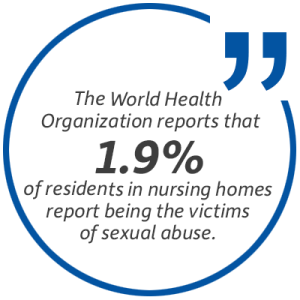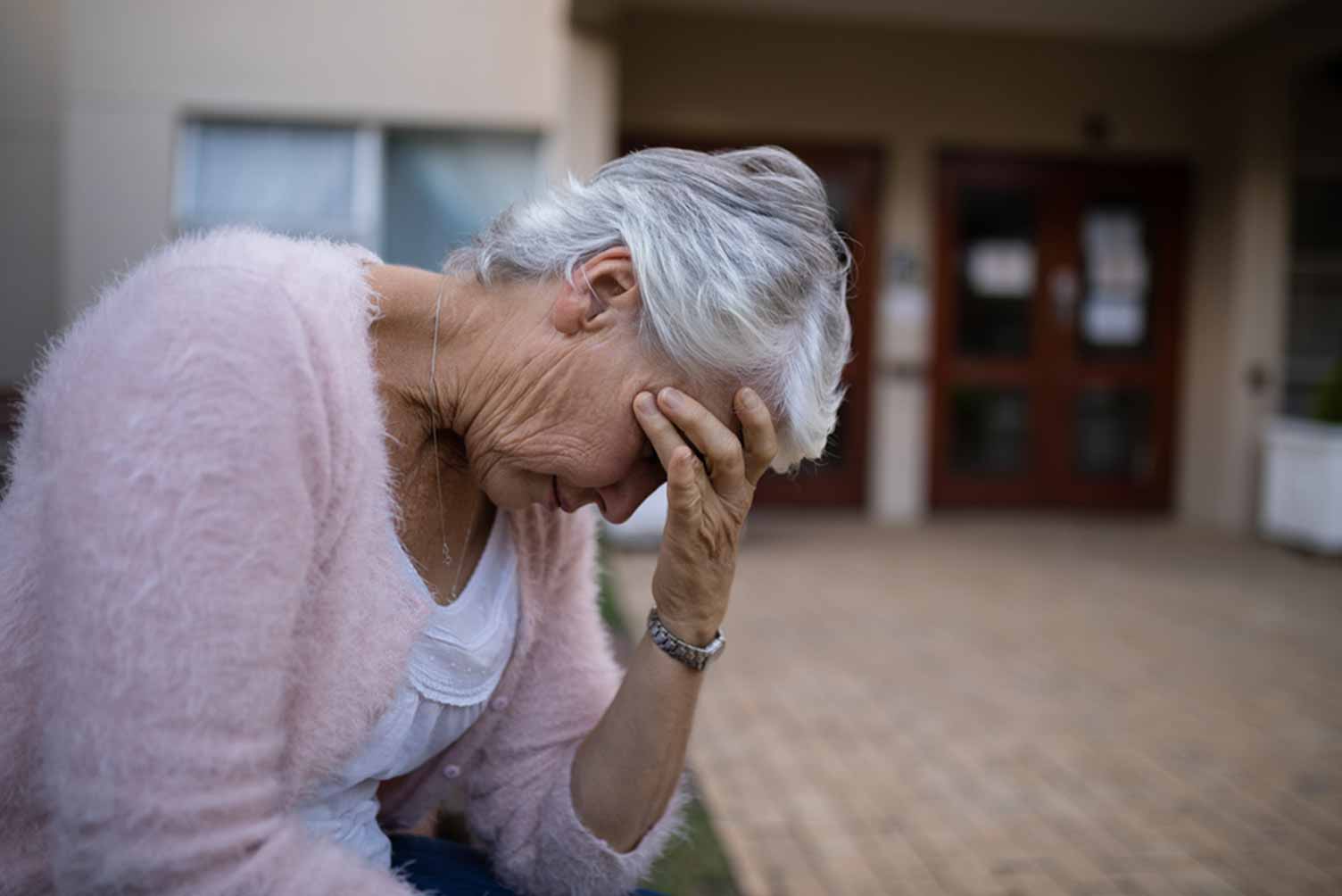Learning that your loved one has been abused in any way can be troubling, but learning that sexual abuse is occurring in the nursing home can be even more upsetting. Unfortunately, instances of sexual abuse in nursing homes happen more often than you might think.

The World Health Organization reports that 64% of nursing home staff have admitted to having abused their patients in some way, and 1.9% of residents in nursing homes report being the victims of sexual abuse.
If you suspect your loved one is the victim of sexual abuse in their nursing home, you should contact an experienced Indiana nursing home abuse lawyer right away. At Crossen Law Firm, we are dedicated to helping victims and their families navigate these distressing cases and ensure the right parties are held accountable.
Contact us today for assistance with your nursing home abuse claim.
Why Does Sexual Abuse in Nursing Homes Occur?
Elderly abuse is a serious problem, but it occurs most often in care settings where patients are vulnerable and exposed to negligent management and staff. When management doesn’t have proper protocols in place to protect patients, it puts them at risk of being abused, either by negligent staff members or even visitors taking advantage of poor management.
This form of abuse also occurs more often in nursing homes because nursing home patients are not as strong and capable of defending themselves. For example, many nursing home residents struggle with mobility and other health issues and they can also become confused more easily. This, unfortunately, makes them easier targets for abusers looking to take advantage of the situation.
Common Forms of Sexual Abuse in Nursing Homes
Sexual abuse in nursing homes can come in many forms and doesn’t just include physical abuse. It can also include emotional or psychological abuse, like sexual harassment. Some examples of ways sexual abuse can occur in nursing homes can include:
- Non-consensual intimate touching, such as when the resident requires help getting dressed or while being bathed
- The abuser exposing themself in front of the resident and forcing the resident to watch
- Masturbating in front of a resident
- Forcing the resident to touch themselves
- Showing pornography to a resident
- Forcing the resident to engage in sexual acts
- Taking sexual photos or videos of the resident
- Raping the resident when they are alone and unsupervised
Who is at Risk of Nursing Home Sexual Abuse?
Again, any resident in a nursing home setting is more vulnerable due to their age and health conditions. However, certain residents may be at higher risk of being sexually abused than others.
A woman sexually assaulted in a nursing home is more likely to occur than a man, for example — and women make up about 65% of the nursing home population. Residents with dementia are also reported to be the victims of sexual abuse more often than other residents, especially if they are women with dementia.
Additional risk factors that can increase the chances of a nursing home resident being sexually abused include:
- Having cognitive or developmental disabilities
- Having physical disabilities
- Struggling with mental health
- Residents who are isolated and do not have many visitors or family support
Signs That Your Loved One May Be Experiencing Sexual Abusing in a Nursing Home
To ensure your loved one gets the care and help they need, it’s important to be aware of the signs that could indicate they are being sexually abused. These signs can be both physical and psychological and may include:
- Unexplained STDs
- Unexplained genital trauma (bruising, wounds, pain, inflammation around the genitals)
- Bruising on any area of the body
- Difficulty sitting or walking
- Unexplained incontinence
- Stained or bloodied underwear or bed linens
- Sudden depression or depressive behaviors
- Agitation
- Sleep disturbances
- Restlessness
- Withdrawn and disinterested in social activities
- Increased anxiety or panic attacks
- Showing fear or agitation around a certain person
- Flinching or shying away from being touched
- Suicidal thoughts
- Fear of being left alone
- Changes in self-image
If you notice any of the signs above or any other unusual symptoms or behaviors, you should take immediate action and report the issue. The first thing you should do is speak to the nursing home administrator about your concerns and file an official complaint. From there, you can call the authorities and report the abuse to the police.
Every state also offers an ombudsman program to help protect those living in care facilities. If you contact Indiana’s Ombudsman program, they will assign someone to your case to investigate your complaint.
You can also file a report with Adult Protective Services. Beyond that, it may be beneficial for you to contact a lawyer as well. A nursing home abuse lawyer will protect your rights and the rights of your loved one and can help make sure the right party is held accountable. They can also help you file a claim or lawsuit to recover financial compensation for the damages suffered.
Consult an Indianapolis Sexual Abuse Nursing Home Lawyer
If you suspect your loved one is being sexually abused in their nursing home, we are here to help. At Crossen Law Firm, our personal injury attorneys have over 20 years of experience fighting for victims of abuse, including those in nursing home settings. We know what it takes to ensure our client’s rights are protected and will do everything we can to get you the settlement you deserve.
Contact us today or give us a call for a free consultation at (317) 401-8626.

 317-401-8626
317-401-8626 
.jpg)